#uk racing history
Text
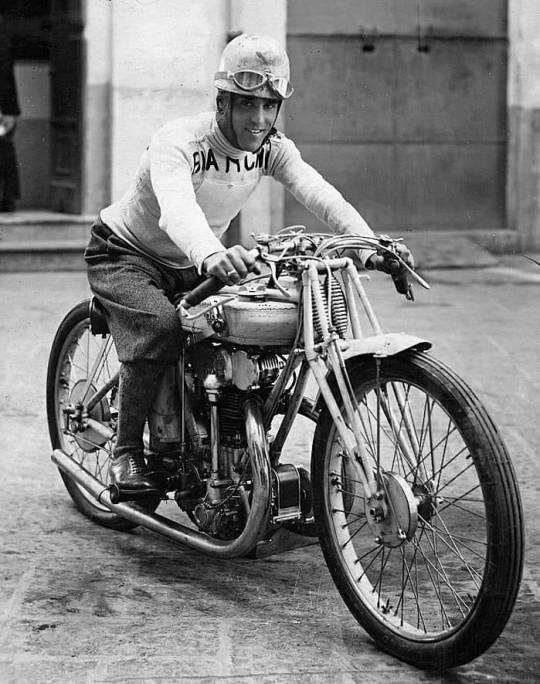
Tazio Nuvolari | UK Racing History
35 notes
·
View notes
Text
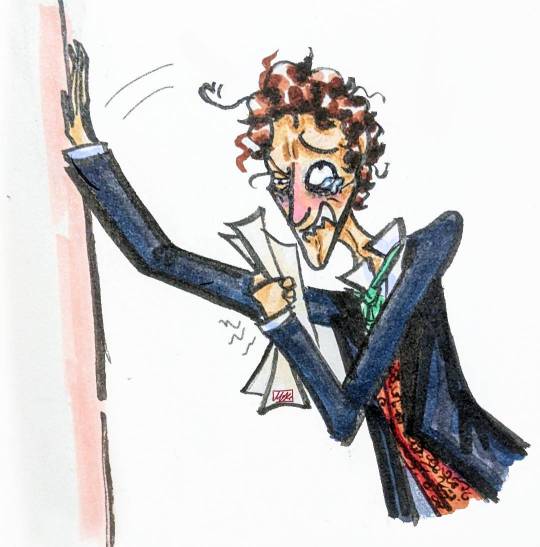



"The man's a penis."
#bbc ghosts#thomas thorne#Ghosts#Six idiots#Horribe histories#Mat baynton#mathew baynton#Everything is wrong with this man/ghost and i am VERY obsessed#Finished 2 seasons and he lives rent free in my head like he does at button house#I think he cant get sucked off bc neither God nor the devil wants the aggravation#That and he cant in life because well. Because well-#Should i tag#Drag race uk#Drag race starlet#Update changed caption bc i forgor what i originally wanted. This quote. This.
53 notes
·
View notes
Text

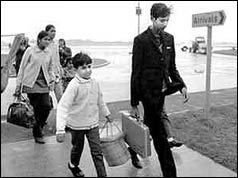
On 18th September 1972, BBC News reported that the first 193 Ugandan refugees, fleeing persecution by the country’s military dictatorship, had arrived at Stansted Airport, Essex. Over half of the arrivals had British passports, and housing and immediate needs would be overseen by the Ugandan Resettlement Board.
Uganda’s Asian community, numbering around 55 000, many of whom ran family businesses and small enterprise, were ordered in August 1972 to leave the country within 90 days by President Idi Amin. Amin had publicly denounced Ugandan Asians as ‘bloodsuckers’, threatening that any who had not left by the arbitrary deadline of November 8th would be interned in military detention camps.
Many of the initial flight of refugees had endured frightening experiences prior to their departure from Uganda, at the hands of Amin’s troops. "On the way to the airport the coach was stopped by troops seven times, and we were all held at gun point," one refugee told reporters. Another stated that he had been robbed of personal valuables and Ugandan currency on the way to Entebbe airport.
News reports at the time cited some opposition within the UK over the acceptance of the Ugandan Asians. The Leicester local authority mounted a newspaper campaign urging refugees not to come to their region seeking jobs and housing. The BBC asserted that, in hindsight, the resettlement programme was seen as ‘a success story for British Immigration’.
The loss of the hardworking and successful Ugandan Asian community devastated Uganda’s agriculture, manufacturing and commerce. Idi Amin was deposed in 1979 and died in Jeddah in 2003, having been responsible for the deaths of as many as 300 000 Ugandan civilians during his reign of terror as President. In 1991, Ugandan President Yoweri Museveni invited the expelled community to return home to help rebuild the economy.
The Wilson Labour government also had to grapple with a refugee crisis from a former African colony.
In February 1968, BBC news reported;
"…Another 96 Indians and Pakistanis from Kenya have arrived in Britain, the latest in a growing exodus of Kenyan Asians fleeing from laws which prevent them making a living…"
Many Asian people living in Kenya had not taken up Kenyan citizenship following the country’s independence from Britain in 1963, but possessed British passports. Under Kenya’s Africanisation policy, non-citizens required work permits, and were being removed from employment in favour of Kenyan nationals. There was growing public demand for laws to prevent non-citizens from owning businesses or even operating as street and market traders. As a result, British passport holders were leaving Kenya at the rate of 1000 per month, leaving a huge deficit in skills and experience within the business community and civil service.
Fearing a backlash over the large numbers of Asian immigrants, Home Secretary, and future Prime Minister, James Callaghan, rushed through the Commonwealth Immigration Act, which made it a requirement that prospective immigrants must have a 'close connection' with Britain.
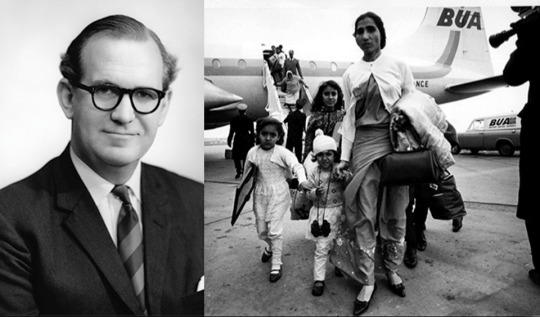
This led to disagreement in Cabinet, with Secretary of State for Commonwealth Affairs, George Thomson (1921-2008) arguing;
"…To pass such legislation would be wrong in principle, clearly discrimination on the grounds of colour, and contrary to everything we stand for…"
In 1971, the Heath government made further legislative changes that would mean that (some) immigrants from Commonwealth countries would be treated no more favourably than those from the rest of the world, and that tightened restrictions on those who stayed by linking work permits to a specific job and location, requiring registration with police, and reapplication to stay in Britain each 12 months.
The Patrial Right of Abode lifted all restrictions on those immigrants with a direct ancestral connection with Britain.

Home Secretary Reginald Maudling (later famous for being smacked in the face by Irish MP Bernadette Devlin, and for having to resign over a corruption scandal linked with disgraced property developer John Poulson) denied that this was, in effect, a 'colour bar', telling the BBC;
"…Of course they are more likely to be white because we have on the whole more whites than coloureds in this country, but there is no colour bar involved…"
Unsurprisingly, not everyone was convinced.
Vishna Sharma, Executive Secretary of the Joint Council for the Welfare of Immigrants, described the bill to BBC News as, "basically racially discriminatory, repressive and divisive," and added, "It will create divisions amongst the Commonwealth citizens already living in this country on patrial and non-patrial basis. It will create day-to-day bureaucracy and interference on people living in this country. It will create more hardship for people wanting to enter into this country."
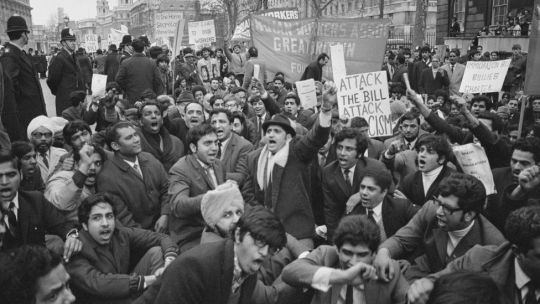
(Source; BBC reporting and history.com. Photo Credits; BBC News)
#social history#uk politics#working class history#social justice#uk government#human rights#uk history#british culture#society#history#race relations#immigration
26 notes
·
View notes
Note
has that other anon ever met an upper class brit because i guarantee they wouldn't feel the same after encountering All That
literally 😭 like comparing classism is so dumb when it’s very much a subjective, varied conversation WITHIN a country let alone amongst different countries but that sentiment can and should coexist with the acknowledgement that british classism Does Not Fuck About
#like u cant lob both country's classim under an umbrella term when comparing them#bc our culture and history with it is so wildly different#like american classism IS there and IS a serious problem the irony here is that literally at no point did anyone say otherwise#so idk why anon got so up in arms lol#but the thing about british classism and the reason it gets talked about so much is because it is such a huge part of our lives#and americans never seem to really get that like even americans that acknowledge it i feel still struggle to grasp the severity of it#I’ve seen a lot of much smarter well-researched people say that class and race in the uk and usa are flipped#so while it’s important to note that BOTH countries have serious issues in both departments the way they manifest is different#so the way race is treated with such severity/extremity in america and racism so normalised and systemic#is exactly how class is here#and the way classism is typically more indirect and underlying in america#is how racism is here#does that make sense? there’s a lot of articles online that explain it better#like im explaining it v briefly and it's obviously not that black and white but that's the general gist of it#and if ur american thinking ‘classism doesn’t FEEL indirect for me so you're WRONG’#then consider im not wrong. that's just how severe it is here for me to be saying it#like idk I can’t stand this narrative anyway of taking away from the original problem to instead have a pissing contest about it#so this will probs be the last I speak about it#but it’s super interesting and it can’t hurt to know more about especially with the prevalence of americacentrism#which is why I responded so harshly to anon to begin with bc like really?#you saw ONE POST that wasn’t about america or american problems and got upset. be serious rn#ask
14 notes
·
View notes
Text
Rather than focus on how “terrible Snatch Game was this week” c’mon it’s not always good seriously, some can show their comedy talents and others may learn within the challenge, I think I’d like to hear some conversations about the discussion about queer history including the actions of that the holocaust and HIV/AIDS crisis and how the government was acting then, that was had afterwards. I think it’s important, some people don’t know anything about these things and it was informative and an important topic and parts of our history that many don’t really know anything about, even a lot of us because we aren’t taught about these things anywhere but from eachother pretty much.
#thank you cheddar gorgeous#cheddar gorgeous#rupaul#rupaul's drag race#rupauls drag race uk#RuPaul uk#queer history#Holocaust#Holocaust mention#aids epidemic#aids crisis#hiv/aids#drag#drag queen
4 notes
·
View notes
Text
The 'Rivers of Blood' Speech by Enoch Powell
Birmingham, England
April 20, 1968
"The supreme function of statesmanship is to provide against preventable evils. In seeking to do so, it encounters obstacles which are deeply rooted in human nature. One is that by the very order of things such evils are not demonstrable until they have occurred. At each stage in their onset there is room for doubt and for dispute whether they are present or not. People are disposed to mistake predicting troubles for causing troubles and even for desiring troubles. “If only,” they love to think, “if only people wouldn’t talk about it, it probably wouldn’t happen.” Perhaps this habit goes back to the primitive belief that the word and the thing, the name and the object, are identical. At all events, this is a dangerous fallacy. It is supremely dangerous in the case of a nation or a whole community. To see and not to speak would be the great betrayal.
The commonest error in politics is sticking to the carcass of dead policies. When the evidence of the eyes and ears stands in opposition to the conventional wisdom of the day, it is the latter which will be disregarded, in almost every case with dismaying results. A respectable person in England almost dreads to disagree with a profession so unworldly as the academic. At the same time he never doubts the education, training, and equipment of an Army which within our memories was raised to defend, under God, these great and Christian realms. How ready he will be to fall back upon the judgment of those he most despises!
It is one of the many contrasts between England and America that whereas in this country political debate and action proceeds upon the assumption that good intentions will always suffice to make everything turn out for the best, in the United States a much more cautious view prevails. In this country, if people believe that something would be nice if it were so, they are all for assuming that it will be so. In the United States the predilection is to make sure that it is so. In this country the argument is about intention and desirability; in the United States it is about effect and practicability.
One reason for this difference is perhaps that in this country politics and government are conducted as a kind of game, almost as a sport, against a backdrop of an ordered and secure society. In the United States government and politics are conducted in the very presence of risks and dangers and difficulties which are a real and ever-present part of the national experience. But what is a kind of luxury for us is a necessity for them, and we shall find ourselves paying a heavy price for our apathy and complacency.
In fifteen or twenty years, on present trends, there will be in this country three and a half million Commonwealth immigrants and their descendants. That is not my figure. That is the official figure given to Parliament by the spokesman of the Registrar General’s Office. There is no comparable official estimate of the increase in the indigenous population during the same period. In fifteen or twenty years the present immigrant population of Great Britain, which is estimated at between one and two million, will have grown to five million, approximately one-tenth of the whole population, and approaching that of Greater London. Of course, this would be a rapid and unprecedented transformation of a country which in 1948 was still almost homogeneously white. So great a number of immigrant people simply cannot be absorbed without such profound changes in the culture, social fabric, and nature of the population as to render the resulting society unrecognizable.
The great majority of immigrants are here for the long haul, with every intention of making a permanent home for themselves and their families, and with every right so to do. The existing population is already growing alarmed and agitated. Here I quote the words of a letter addressed to me by a constituent in North London: "The black man will have the whip hand over the white man." This is a reflection not only of the sense of helplessness and confusion, but also of resentment and hostility, which are increasingly felt and voiced. When the United States becomes concerned about a "racial problem," it calls in the National Guard, and their government knows that the call can be justified. Here, the “moderate and responsible” members of society as often as not are more apprehensive of the consequences of defending order than of the disorder itself.
Many of them, like the writer of this letter, regard the prospect with horror and foreboding. One of my constituents wrote to me in desperation. In a fortnight, she said, she would have to vacate her small house, where she and her husband have lived for 15 years, because a “crowd of Negroes” was moving into the street and had already made her life unbearable. She went on: “Mr. Powell, it is difficult to describe what the consequences are for us, with the constant noise, the constant threat of violence, and the dirt. We dare not go out of the house, because when we do we are followed by gangs of Negroes, who pelt us with stones and jeer at us. I am not a racialist, but I have never experienced the like in all my life. These people are not our people and our home is now not ours. Please do something about it.” (The words "Negro" and "racialist" are verbatim.)
It is, indeed, difficult to describe the consequences of the natural reaction of the original population to the remorseless transformation to which it is being subjected. To quote another constituent: “I have three children, all of whom are in school. In two of the three classrooms of my children there are, and there have been, Negro children. Each of my children has been assaulted by them, and each time they have tried to fight back. This morning I had to see a Negro teacher because my son had been whipped by one of these boys, but the teacher was not interested.”
It is not true that the immigrant population is consistently law-abiding. In the most serious of all crimes—murder—there is an increasing incidence of crime by coloured immigrants. In one case this year a coloured man was convicted of the murder of a white girl with whom he had been living, and in another, also in London, two coloured men were sentenced to life imprisonment for the murder of a police constable. There has been an increase in attacks upon women, and here too there are constant reports of racial aspects.
For these and other reasons there is a rapidly increasing danger that this country will be the subject of the kind of inter-communal violence which is endemic in parts of the United States, and now for the same reasons is spreading to England. If I am right, and even if I am only partially right, if there is any element of truth in what I am saying, I am sure that the people of this country will listen to a voice warning of danger before it is too late.
Of course, the most strident voices will be raised to say that this is all a figment of the imagination; that there is nothing whatever to worry about. They will also say that I am pandering to the worst instincts of human nature. But when the official figures show that the immigrant and immigrant-descended population of this country will approach five million within twenty years, it is no good at the same time denying that the consequences of that are going to be serious and grave.
Yet I can already hear the chorus of execration. How dare I say such a horrible thing? How dare I stir up trouble and incite hatred? I am simply being prudent and responsible, and to give a warning before it is too late.
The sense of urgency will have to be felt. This country is not going to be easily forgiven for throwing away its future. The vision of the nation is being blinded by sentimentality and the unwillingness to face the facts.
I say to you that in my lifetime this country will look and feel like a different country. Even now, in parts of our cities, the transformation is evident. They found that 15 per cent of the population of Wolverhampton is now non-white. The people are questioning and alarmed. They have cause to be alarmed. If only the House of Commons would reflect the views of the people in its legislation, there would be no cause for alarm. But they do not, and I believe it is a great betrayal.
We must be mad, literally mad, as a nation to be permitting the annual inflow of some 50,000 dependents, who are for the most part the material of the future growth of the immigrant-descended population. It is like watching a nation busily engaged in heaping up its own funeral pyre. I simply cannot believe that any rational person can look on in this way without some sense of impending disaster.
But that is what is happening. It is like watching a nation busily engaged in heaping up its own funeral pyre. Indeed, I am astonished at the sanity of those who make the decisions. They simply cannot be mad, literally mad, in their actions and attitudes. And yet they are.
For these reasons, among many others, I believe that immigration is the issue which will determine the future of this country. The House of Commons must be brought to understand that it is an issue of survival. If not, we shall have handed over to our children a legacy of the most monstrous growth of all time. This is not fantasy. This is not invention. This is not cynicism. It is reality.
In this country, in fifteen or twenty years’ time, the black man will have the whip hand over the white man. For these reasons, among many others, I believe that immigration is the issue which will determine the future of this country. We must be mad, literally mad, to be permitting the annual inflow of some 50,000 dependents, who are for the most part the material of the future growth of the immigrant-descended population. It is like watching a nation busily engaged in heaping up its own funeral pyre.
I simply do not have the stomach to go on with this, though it is not yet finished. There is a danger, a clear danger, that we will be overwhelmed. Indeed, it is not only a danger, it is a certainty.
I do not believe there is a single person in this country who does not believe it. They are all sensible people. They all know what is happening, though they are afraid to speak out.
For these reasons, among many others, I believe that immigration is the issue which will determine the future of this country. It is like watching a nation busily engaged in heaping up its own funeral pyre.
I have left this country in despair. But I do not despair of our country. I believe in the British people. The significance of this cannot be overlooked. There is a danger, a clear danger, that we will be overwhelmed. Indeed, it is not only a danger, it is a certainty.

In fifteen or twenty years’ time, on present trends, there will be in this country three and a half million Commonwealth immigrants and their descendants. That is not my figure. That is the official figure given to Parliament by the spokesman of the Registrar General’s Office. There is no comparable official estimate of the increase in the indigenous population during the same period. In fifteen or twenty years the present immigrant population of Great Britain, which is estimated at between one and two million, will have grown to five million, approximately one-tenth of the whole population, and approaching that of Greater London. Of course, this would be a rapid and unprecedented transformation of a country which in 1948 was still almost homogeneously white. So great a number of immigrant people simply cannot be absorbed without such profound changes in the culture, social fabric, and nature of the population as to render the resulting society unrecognizable.
The great majority of immigrants are here for the long haul, with every intention of making a permanent home for themselves and their families, and with every right so to do. The existing population is already growing alarmed and agitated. Here I quote the words of a letter addressed to me by a constituent in North London: "The black man will have the whip hand over the white man." This is a reflection not only of the sense of helplessness and confusion, but also of resentment and hostility, which are increasingly felt and voiced. When the United States becomes concerned about a "racial problem," it calls in the National Guard, and their government knows that the call can be justified. Here, the “moderate and responsible” members of society as often as not are more apprehensive of the consequences of defending order than of the disorder itself.
Many of them, like the writer of this letter, regard the prospect with horror and foreboding. One of my constituents wrote to me in desperation. In a fortnight, she said, she would have to vacate her small house, where she and her husband have lived for 15 years, because a “crowd of Negroes” was moving into the street and had already made her life unbearable. She went on: “Mr. Powell, it is difficult to describe what the consequences are for us, with the constant noise, the constant threat of violence, and the dirt. We dare not go out of the house, because when we do we are followed by gangs of Negroes, who pelt us with stones and jeer at us. I am not a racialist, but I have never experienced the like in all my life. These people are not our people and our home is now not ours. Please do something about it.” (The words "Negro" and "racialist" are verbatim.)
It is, indeed, difficult to describe the consequences of the natural reaction of the original population to the remorseless transformation to which it is being subjected. To quote another constituent: “I have three children, all of whom are in school. In two of the three classrooms of my children there are, and there have been, Negro children. Each of my children has been assaulted by them, and each time they have tried to fight back. This morning I had to see a Negro teacher because my son had been whipped by one of these boys, but the teacher was not interested.”
It is not true that the immigrant population is consistently law-abiding. In the most serious of all crimes—murder—there is an increasing incidence of crime by coloured immigrants. In one case this year a coloured man was convicted of the murder of a white girl with whom he had been living, and in another, also in London, two coloured men were sentenced to life imprisonment for the murder of a police constable. There has been an increase in attacks upon women, and here too there are constant reports of racial aspects.

For these and other reasons there is a rapidly increasing danger that this country will be the subject of the kind of inter-communal violence which is endemic in parts of the United States, and now for the same reasons is spreading to England. If I am right, and even if I am only partially right, if there is any element of truth in what I am saying, I am sure that the people of this country will listen to a voice warning of danger before it is too late.
Of course, the most strident voices will be raised to say that this is all a figment of the imagination; that there is nothing whatever to worry about. They will also say that I am pandering to the worst instincts of human nature. But when the official figures show that the immigrant and immigrant-descended population of this country will approach five million within twenty years, it is no good at the same time denying that the consequences of that are going to be serious and grave.
Yet I can already hear the chorus of execration. How dare I say such a horrible thing? How dare I stir up trouble and incite hatred? I am simply being prudent and responsible, and to give a warning before it is too late.
The sense of urgency will have to be felt. This country is not going to be easily forgiven for throwing away its future. The vision of the nation is being blinded by sentimentality and the unwillingness to face the facts.
I say to you that in my lifetime this country will look and feel like a different country. Even now, in parts of our cities, the transformation is evident. They found that 15 per cent of the population of Wolverhampton is now non-white. The people are questioning and alarmed. They have cause to be alarmed. If only the House of Commons would reflect the views of the people in its legislation, there would be no cause for alarm. But they do not, and I believe it is a great betrayal.
We must be mad, literally mad, as a nation to be permitting the annual inflow of some 50,000 dependents, who are for the most part the material of the future growth of the immigrant-descended population. It is like watching a nation busily engaged in heaping up its own funeral pyre. I simply cannot believe that any rational person can look on in this way without some sense of impending disaster.
But that is what is happening. It is like watching a nation busily engaged in heaping up its own funeral pyre. Indeed, I am astonished at the sanity of those who make the decisions. They simply cannot be mad, literally mad, in their actions and attitudes. And yet they are.
For these reasons, among many others, I believe that immigration is the issue which will determine the future of this country. The House of Commons must be brought to understand that it is an issue of survival. If not, we shall have handed over to our children a legacy of the most monstrous growth of all time. This is not fantasy. This is not invention. This is not cynicism. It is reality.
In this country, in fifteen or twenty years’ time, the black man will have the whip hand over the white man. For these reasons, among many others, I believe that immigration is the issue which will determine the future of this country. We must be mad, literally mad, to be permitting the annual inflow of some 50,000 dependents, who are for the most part the material of the future growth of the immigrant-descended population. It is like watching a nation busily engaged in heaping up its own funeral pyre.
I simply do not have the stomach to go on with this, though it is not yet finished. There is a danger, a clear danger, that we will be overwhelmed. Indeed, it is not only a danger, it is a certainty.
I do not believe there is a single person in this country who does not believe it. They are all sensible people. They all know what is happening, though they are afraid to speak out.
For these reasons, among many others, I believe that immigration is the issue which will determine the future of this country. It is like watching a nation busily engaged in heaping up its own funeral pyre.
I have left this country in despair. But I do not despair of our country. I believe in the British people. The significance of this cannot be overlooked. There is a danger, a clear danger, that we will be overwhelmed. Indeed, it is not only a danger, it is a certainty."
John Enoch Powell MBE was a British politician and statesman. He served as a Conservative Member of Parliament and was Minister of Health then Ulster Unionist Party MP. Before entering politics, Powell was a classical scholar.
youtube
#quoteoftheday#Enoch Powell#Rivers of Blood speech#1968#British politics#Immigration#Race relations#Controversial speeches#UK history#Commonwealth immigrants#Racial tensions#Political rhetoric#National identity#Anti-immigration#Public reaction#Wolverhampton#Conservative Party#British Parliament#Historical speeches#Ethnic diversity#Social change#Youtube
0 notes
Text
gosh jordan is such a smart chao he opens the surprise boxes instantly and never takes more than a second in the pick-an-object section of the races either, like this boy fell flat on his face at the start of this race and fell behind momentarily, but there was a surprise box section at the start that he got through faster than the other competitors that let him get his lead back. i love this chao i can't believe how good he is
#jordan#i also love that we have a weird long history together#where he was on the advance 1 cart i bought from the UK in 2017#and how i tried to reset the game but the glitch where the chao data fails to reset kept him around anyway#and now he gets to race on a gamecube :)
1 note
·
View note
Text
It is over and everything is lost. This is the refrain repeated by Armenian families as they take that final step across the border out of their home of Nagorno-Karabakh.
In just a handful of days more than 100,000 people, almost the entire Armenian population of the breakaway enclave, has fled fearing ethnic persecution at the hands of Azerbaijani forces. The world barely registered it. But this astonishing exodus has vanished a self-declared state that thousands have died fighting for and ended a decades-old bloody chapter of history.
On Saturday, along that dusty mountain road to neighbouring Armenia, a few remaining people limp to safety after enduring days in transit.
Among them is the Tsovinar family who appear bundled in a hatchback littered with bullet holes, with seven relatives crushed in the back. Hasratyan, 48, the mother, crumbles into tears as she tries to make sense of her last 48 hours. The thought she cannot banish is that from this moment forward, she will never again be able to visit the grave of her brother killed in a previous bout of fighting.
“He is buried in our village which is now controlled by Azerbaijan. We can never go back,” the mother-of-three says, as her teenage girls sob quietly beside her.
“We have lost our home, and our homeland. It is an erasing of a people. The world kept silent and handed us over”.
She is interrupted by several ambulances racing in the opposite direction towards Nagorno-Karabakh’s main city of Stepanakert, or Khankendi, as it is known by the Azerbaijani forces that now control the streets. Their job is to fetch the few remaining Karabakh Armenians who want to leave and have yet to make it out.
“Those left are the poorest who have no cars, the disabled and elderly who can’t move easily,” a first responder calls at us through the window. “Then we’re told that’s it.”
As the world focused on the United Nations General Assembly, the war in Ukraine and, in the UK, the felling of an iconic Sycamore tree, a decades old war has reignited here unnoticed.
It ultimately heralded the end of Nagorno-Karabakh, a breakaway Armenian region, that is internationally recognised as being part of Azerbaijan but for several decades has enjoyed de facto independence. It has triggered the largest movement of people in the South Caucasus since the collapse of the Soviet Union.
Azerbaijan has vehemently denied instigating ethnic cleansing and has promised to protect Armenians as it works to reintegrate the enclave.
But in the border town of Goris, surrounded by the chaotic arrival of hundreds of refugees, Armenia’s infrastructure minister says Yerevan was now struggling to work out what to do with tens of thousands of displaced and desperate people.
“Simply put this is a modern ethnic cleansing that has been permitted through the guilty silence of the world,” minister Gnel Sanosyan tells The Independent, as four new busses of fleeing families arrive behind him.
“This is a global shame, a shame for the world. We need the international community to step up and step up now.”
The divisions in this part of the world have their roots in centuries-old conflict but the latest iterations of bitter bloodshed erupted during the collapse of the Soviet Union. The Karabakh Armenians, who are in the majority in the enclave, demanded the right to autonomy over the 4,400 square kilometre rolling mountainous region that has its own history and dialect. In the early 1990s they won a bloody war that uprooted Azerbaijanis, building a de facto state that wasn’t internationally unrecognised.
That is until in 2020. Azerbaijan, backed by Turkey, launched a military offensive and took back swathes of territory in a six-week conflict that killed thousands of soldiers and civilians. Russia, which originally supported Armenia but in recent years has grown into a colder ally, brokered a fragile truce and deployed peacekeepers.
But Moscow failed to stop Baku in December, enforcing a 10-month blockade on Nagorno-Karabakh, strangling food, fuel, electricity and water supplies. Then, the international community stood by as Azerbaijan launched a 24-hour military blitz that proved too much for Armenian separatist forces. Outgunned, outnumbered and weakened by the blockade, they agreed to lay down their weapons.
For 30 years the Karabakh authorities had survived pressure from international powerhouses to give up statehood or at least downgrade their aspirations for Nagorno-Karabakh. For 30 years peace plans brokered by countries across the world were tabled and shelved.
And then in a week all hope vanished and the self-declared government agreed to dissolve.
Fearing further shelling and then violent reprisals, as news broke several Karabakh officials including former ministers and separatist commanders, had been arrested by Azerbaijani security forces, people flooded over the border.
At the political level there are discussions about “reintegration” and “peace” but with so few left in Nagorno-Karabakh any process would now be futile.
And so now, sleeping in tents on the floors of hotels, restaurants and sometimes the streets of border towns, shellshocked families, with a handful of belongings, are trying to piece their lives together.
Among them is Vardan Tadevosyan, Nagorno-Karabakh’s minister of health until the government was effectively dissolved on Thursday. He spent the night camping on the floor of a hotel, and carries only the clothes he is wearing. Exhausted he says he had “no idea what the future brings”.
“For 25 years I have built a rehabilitation centre for people with physical disabilities I had to leave it all behind. You don’t know how many people are calling me for support,” he says as his phone ringed incessantly in the background throughout the interview.
“We all left everything behind. I am very depressed,” he repeats, swallowing the sentence with a sigh.
Next to him Artemis, 58, a kindergarten coordinator who has spent 30 years in Steparankert, says the real problems were going to start in the coming weeks when the refugees outstay their temporary accommodation.
“The Azerbaijanis said they want to integrate Nagorno-Karabakh but how do you blockade a people for 10 months and then launch a military operation and then ask them to integrate?” she asks, as she prepares for a new leg of the journey to the Armenian capital where she hopes to find shelter.
“The blockade was part of the ethnic cleansing. This is the only way to get people to flee the land they love. There is no humanity left in the world.”
Back in the central square of Goris, where families pick through piles of donated clothes and blankets and aid organisations hand out food, the loudest question is: what next?
Armenian officials are busy registering families and sending them to shelters in different corners of the country. But there are unanswered queries about long-term accommodation, work and schooling.
“I can’t really think about it, it hurts too much,” says Hasratyan’s eldest daughter Lilet, 16, trembling in the sunlight as the family starts the registration process.
“All I can say to the world is please speak about this and think about us. We are humans, people made of blood, like you and we need your help.”
8K notes
·
View notes
Text

1965 Shelby Cobra 427 Roadster
The Shelby Roadster is arguably the most famous and relevant of all the automotive legends. In 1962, the Shelby Cobra (or AC Cobra, in the UK) wrote its storied beginnings as a collaboration between Ford and British automaker AC with the release of the first production Cobra known as the CSX2001 / Mark I.
In the early 1960s, Ford endeavored to build a car that would oust the Chevrolet Corvette as the USA’s most significant sports car. The American automaker was well prepared to take on their local rival and had already produced the engine they would take to the fight – a new, lightweight, thin-wall cast small-block 3.6L V8. However, they still needed a chassis to go along with the powerplant.
Here enters the charismatic Carroll Shelby – financially backed by Ford for this venture – who recognized the racing success of the AC Ace in the late 1950s and would end up brokering an agreement with the Britons who would manufacture a chassis based on the Ace, which Ford would then use its fledgling V8 engine to breathe life into.
Although the Ace was an aging design near the end of its life cycle, its lightweight structure would become the ideal complement in creating one of the greatest American sports cars ever made over the next few years. Thus, the Shelby Cobra was born; and the rest, as they say, is history
#Shelby Cobra 427 Roadster#Shelby Cobra 427#Shelby Cobra#Shelby#Roadster#427#Cobra#car#cars#muscle car#american muscle#ford
1K notes
·
View notes
Text
"The sleeping giant of the US Environmental Protection Agency (EPA) has stirred.
In the past month, an avalanche of anti-pollution rules, targeting everything from toxic drinking water to planet-heating gases in the atmosphere, have been issued by the agency. Belatedly, the sizable weight of the US federal government is being thrown at longstanding environmental crises, including the climate emergency.
On Thursday [May 18, 2023], the EPA’s month of frenzied activity was crowned by the toughest ever limits upon carbon pollution from America’s power sector, with large, existing coal and gas plants told they must slash their emissions by 90% or face being shut down.
The measure will, the EPA says, wipe out more than 600m tons of carbon emissions over the next two decades, about double what the entire UK emits each year. But even this wasn’t the biggest pollution reduction announced in recent weeks.
In April, new emissions standards for cars and trucks will eliminate an expected 9bn tons of CO2 by the mid-point of the century, while separate rules issued late last year aim to slash hydrofluorocarbons, planet-heating gases used widely in refrigeration and air conditioning, by 4.6bn tons in the same timeframe. Methane, another highly potent greenhouse gas, will be curtailed by 810m tons over the next decade in another EPA edict.
In just a few short months the EPA, diminished and demoralized under Donald Trump, has flexed its regulatory muscles to the extent that 15bn tons of greenhouse gases – equivalent to about three times the US’s carbon pollution, or nearly half of the entire world’s annual fossil fuel emissions – are set to be prevented, transforming the power basis of Americans’ cars and homes in the process...
If last year’s Inflation Reduction Act (IRA), with its $370bn in clean energy subsidies and enticements for electric car buyers, was the carrot to reducing emissions, the EPA now appears to be bringing a hefty stick.
The IRA should help reduce US emissions by about 40% this decade but the cut needs to be deeper, up to half of 2005 levels, to give the world a chance of avoiding catastrophic heatwaves, wildfires, drought and other climate calamities. The new rules suddenly put America, after years of delay and political rancor, tantalizingly within reach of this...

“It’s clear we’ve reached a pivotal point in human history and it’s on all of us to act right now to protect our future,” said Michael Regan, the administrator of the EPA, in a speech last week at the University of Maryland. The venue was chosen in a nod to the young, climate-concerned voters Joe Biden hopes to court in next year’s presidential election, and who have been dismayed by Biden’s acquiescence to large-scale oil and gas drilling.
“Folks, this is our future we are talking about, and we have a once-in-a-generation opportunity for real climate action,” [Michael Regan, the administrator of the EPA], added. “Failure is not an option, indifference is not an option, inaction is not an option.” ...
It’s not just climate the EPA has acted upon in recent months. There are new standards for chemical plants, such as those that blight the so-called "Cancer Alley" the US, from emitting cancer-causing toxins such as benzene, ethylene oxide and vinyl chloride. New rules curbing mercury, arsenic and lead from industrial facilities have been released, as have tighter limits on emissions of soot and the first ever regulations targeting the presence of per- and polyfluoroalkylsubstances (or PFAS) in drinking water.” ...
For those inside the agency, the breakneck pace has been enervating. “It’s definitely a race against time,” said one senior EPA official, who asked not to be named. “The clock is ticking. It is a sprint through a marathon and it is exhausting.” ...
“We know the work to confront the climate crisis doesn’t stop at strong carbon pollution standards,” said Ben Jealous, the executive director of the Sierra Club.
“The continued use or expansion of fossil power plants is incompatible with a livable future. Simply put, we must not merely limit the use of fossil fuel electricity – we must end it entirely.”"
-via The Guardian (US), 5/16/23
#epa#environmental protection agency#united states#us politics#coal#cw cancer mention#pfas#sustainability#carbon emissions#good news#hope
6K notes
·
View notes
Text

1955 Dutch Grand Prix | Bernard Cahier | UK Racing History
5 notes
·
View notes
Text
HE LIKES MY AMERICAN SMILE ━━ OP81. [REWRITE]
he may not be a london boy, but you love him all the same, and you’re about to learn the hard way that loving someone can be a wild ride.
( oscar piastri x sargeant!reader )
━━ part one.

INSTAGRAM.
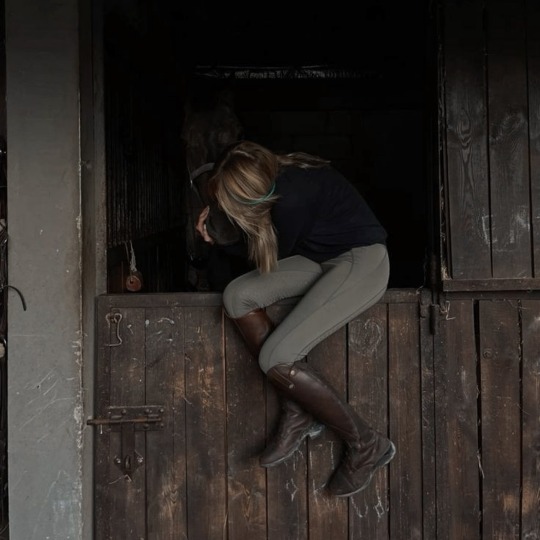
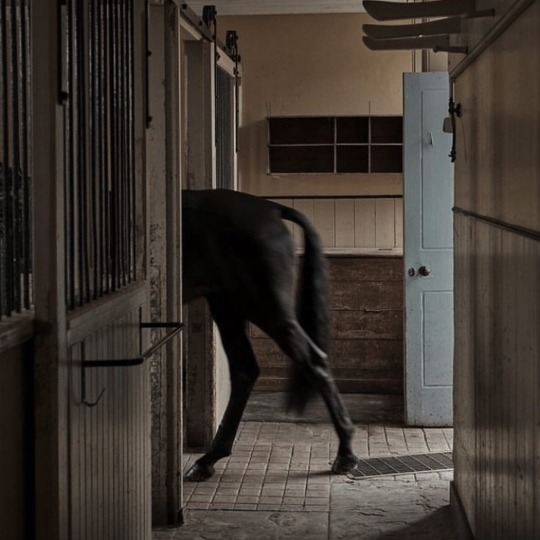
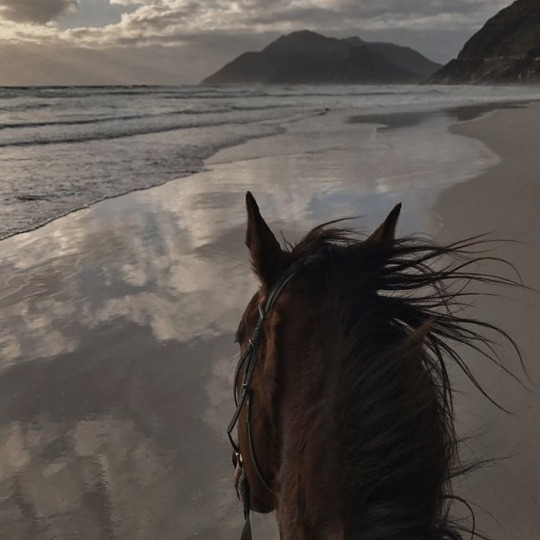
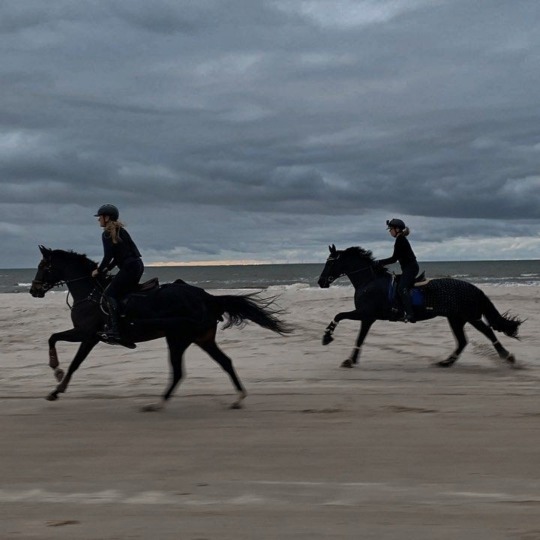
liked by logansargeant, daltonsargeant, and 61,816 others
yourusername me and london boy have made so many memories here together and i’ll cherish them forever ❤️. i love this sport and i love the people i've met in this sport. i'll always love it and them, but sometimes you have to take a step back and set your sights on new horizons. that said, neither of us will be competing in any events this year— endurance or otherwise. london boy will stay in richmond and continue to receive the best care possible from people who have grown to love him as much as i do, and in the meantime, i'll start looking to those other horizons.
view all 1,761 comments
user wishing you the best of luck!! we’ll miss seeing you and london boy, but we know this decision wasn’t made lightly and we hope whatever you do will make you just as happy as riding does!!
user london boy lives a more luxurious life than i could ever hope
↳ user real like why am i jealous of a horse 😭😭
↳ user knowing how well these horses are treated? we should all be jealous
↳ user some of these horses have rain coats that cost more than my entire wardrobe combined… the day i learned that was not a fun day… 😔
user honestly only ever tuned in to watch you both
user the events won’t be the same without you!!!
user I’LL MISS YOU LONDON BOY
user take all the time you need to explore other options! you can love something and still get burnt out on it. sometimes taking that step away can be the decision that allows us to continue loving something instead of growing resentful towards it. do what you need to do to be happy! 🫶
↳ user this is such a good way to put it!!
↳ user THIS. i did competitive jumping for ten years and towards the end of that time i started seeing it more as a chore than the sport i used to be so passionate about. you absolutely CAN love something and still get burnt out on it. taking breaks is so important.
user i’m sure london boy will miss you but you do you girliepop! take a trip or go on an adventure!
user oh to be a girl riding her horse across the beach at sunrise 🥲
↳ user IKR?!? talk about dream life, she’s literally living out scenes that i’ve only ever seen in movies
↳ user it’s london boy’s world and we’re all just living in it
user wait does this mean no more horse content???
↳ user i mean she’s not getting rid of her horse or even outright retiring, she just won’t be riding competitively for 2023
user is she leaving the uk or smth?? bc she said other ppl will be looking after london boy?? i know nothing about horses guys i’m sorry
↳ user london boy will be staying at the stables as per her caption! he will be looked after by many trained professionals who will ensure he is properly fed, watered, exercised, and groomed each day! it’s actually very common for people to board their horses at a stable since horses often need large fields to graze and exercise in, and not a lot of people have big enough backyards or own property to be able to provide that themselves. whether she’s leaving the uk or not, we don’t know, but it definitely sounds like her training with london boy will be put on hold for the time being!
user miss girl we’ll always remember you and london boy as the greatest duo in endurance racing history
↳ user REAL REAL REAL
user does this have to do with her falling off a few months back??
↳ user it could, she did mention the encounter leaving her pretty shaken
↳ user yeah but the possibility of something like this happening is so high that a lot of riders have accepted it as an inevitable occurrence in their career
↳ user even still, that doesn’t change the fact that she could very well be traumatized or experiencing lingering side effects
↳ user guys!! speculation will do us no good!! if she wants to tell us, she will!!
user YOU KNOW I LOVE A LONDON BOY 🗣🗣🗣
logansargeant wanna trade one paddock for another?
There’s a sort of terrifying uncertainty that comes with breaking a long-standing routine.
It’s like a fucked-up sort of package deal— you stop following the methodized schedule you’ve meticulously upheld for years, and in exchange, you receive more time than you know what to do with and an overwhelming responsibility to fill it.
The only question is: with what?
The muscle memory lingers, and you suspect that it’ll take some time for your body to un-familiarize itself with a sleep schedule that you’ve religiously held on to for years, but there’s no demands to maintain any of it and that makes any sort of attempt at continuing to run through the motions feel entirely obsolete. You may instinctively wake up at the ass crack of dawn, but without the necessity of a horse relying on your punctuality to get him fed, watered, and turned out to the paddock, there’s nothing you can do beyond filling the morning with something until your internal clock catches the memo and decides to let you sleep in for once.
“You know, when I invited you to tag along with me,” Logan begins in lieu of a greeting when he opens the front door and sees you standing on the stoep of his apartment, clad in athletic wear and a pair of well-worn running shoes, “I was under the impression that we both understood that to mean the traveling to races part and not necessarily the pre-season training.”
“‘My dearest sister,’” you sarcastically quip back in a mockingly deep voice, feigning heartfelt sincerity and pressing your hand melodramatically to your chest. “‘How good it is to see you after so long! I would be absolutely delighted if you joined me on my morning run today.’”
Your twin brother shakes his head in exasperation, but through the facade of annoyance, you can recognize the hint of a smile tugging at the corners of his lips.
“Honestly, Logie,” You pretend to wipe a tear from the corner of your eye and add in a sniffle for extra flair, “you're too sweet. What would I ever do without you?”
“We saw each other a week ago at brunch,” he grumbles, reluctantly taking a step back from the door and allowing you to pass over the threshold into the warmth of the apartment and out of the winter’s frigid morning air.
“When?”
“Last Wednesday—”
“—did I ask? Oh! Boom! Gotcha!” You whoop out an exclamation of victory as you continue down the hall. “Gosh, I am four for four now. You gotta step up your game, Logie-bear, or this is gonna end in a miserable shut out for you.”
He heaves out a heavy sigh that carries with it twenty-two years of suppressed brotherly rage and the exhaustion that can only come from being reminded at every chance that he is, and always will be, a minute younger than you. “You're the bane of my existence, and I do sincerely hope you know this.”
“Aw, I love you too!”
You step into the small kitchen at the end of the hall. With the exception of a little potted cactus sitting on the windowsill— a housewarming gift from you— it looks nearly identical to how it was the last time you visited.
A month ago.
When he moved in.
There's a woven mat on the floor in front of the sink, an ashy green that contrasts nicely with the off-white cream color of the cabinets and laminate countertops. You can't really tell if Logan actually bought the mat, or if it came with the place, but it's cute nonetheless and serves as one of the few pops of color in the otherwise monochromatically beige apartment.
“I see that my cactus continues to reign supreme as the only individuality in this place,” you comment, glancing over your shoulder in time to see him appear in the doorway.
He shrugs at your words. “Yeah, well, you'd be surprised how busy you can get when you're preparing for everything you've ever dreamed about. No biggie.”
“Logan,” you turn to face him, “you'll do great. There are two other rookies on the grid—”
“And I'll be in the worst car out of all of them.”
“You don't know that,” you chide gently.
This side of Logan isn't unfamiliar to you— the anxiety and fear of failure. It's always existed, and you've known about it since the morning of his first kart race when he confided in you that he was so nervous he felt like he was going to be sick.
The insecurities surrounding his own skills have persisted and thrived with every new track, every new team, and every new series, and as you've grown alongside him you've found ways to challenge his self-doubt, but you've also learned to accept that there's only so much you alone can do.
You can debate it and challenge the self-deprecating thoughts all you want, but the voice in his head will always be there, no matter how quiet it occasionally becomes.
So you choose to drop the topic for now.
It's too early in the morning for an impromptu therapy session anyway.
You turn back around and scan the countertops until your eyes latch onto the container of pre-workout tucked away in the corner, nearly hidden amidst the mountain of vitamin and nutrient supplements.
“I thought it was part of Benny’s job to make sure you didn't have to use all this shit,” you comment, picking through the jars and eyeing them each with unapologetic distaste.
Logan reaches over your shoulder and plucks a packet of vitamin C tablets from your hand, “Sometimes these just work better.”
“Yeah, maybe if you don’t have a nutritionist being paid to quite literally curate a diet specifically to ensure that you don’t need to use these,” you gesture widely to the assembled mass of supplements. “But, last I checked, dear brother of mine, you do have a nutritionist— and a very good one at that— who would be horrified to learn you’re substituting real fruit for…” you squint down at the nutritional label of another one of the jars, but there’s very little that you recognize amidst the scientific jargon and long, five-syllable words, “little gummies that taste like fruit.”
He huffs, “Get your pre-workout or I'm leaving without you.”
“You wouldn't dare leave without me,” you grumble.
“I've done it before and I'll do it again,” he snipes, giving a brief yank on your ponytail and cackling when you swat behind yourself in futility.
There’s more he isn’t saying— there always is, nowadays— but you recognize the deflection for what it is. You want to claw him apart with questions and demand answers that bare every inch of his soul so you understand what he isn’t telling you and why he feels the need to keep it locked away even from you, but you know better than to keep pushing at something Logan clearly doesn’t want to talk about.
It makes you nostalgic for a time in your life when he’d sneak down from the top of the bunk bed after your parents had tucked you away for the night and slip under the covers with you, a well-loved stuffed bear hugged to his chest. He’d curl up beside you and you’d pull the blankets up to your chin and watch him with big, curious eyes until he’d whisper out into the darkness of your shared bedroom what he was worrying about.
More often than not it was a byproduct of a hyperactive imagination still plagued by the fears of childhood. Something about the space beneath your bed and— “What if there’s something down there? And the only way you can see it is by its glowing eyes? But what if it knows when someone is gonna look under the bed, so it closes its eyes so you can’t see the glow?” Or the curtains and— “You have to make sure they cover the whole window because what if you don’t and then something looks inside and it knows I’m not asleep and then it comes inside? I always hold really still and pretend to be asleep even when I’m not if the curtains aren’t closed.”
But sometimes it was about anything and everything else like the fox sitting in the bushes by the bus stop on the way home from school and whether or not it had water to keep it cool in the Florida heat, or the purple glitter pen Mrs. Moore used to grade his spelling test and how the girl sitting next to him had gotten her test graded with the green glitter pen, or— “I forgot my coat in Mr. Garrison’s class yesterday, and you went and got it for me and brought it to the car with you, and I didn’t say thank you, but I always feel bad when I leave my coat behind because what if it has feelings and felt really bad because it thought I was abandoning it, so thank you for getting my coat so it didn’t feel abandoned.”
But that was then and this is now.
You’re both adults, and you live in different apartments on different ends of the city, and you work different jobs that separate you by half the globe at times. There’s no more talk of foxes by bus stops or glitter pens, and certainly no more sentient coats with fears of abandonment.
When you look at Logan now, he isn’t wasting away, and really you owe it to him after you announced out of the blue a week ago that you weren’t just taking a break from competitive riding, but rather taking a break from riding as a whole. He didn’t press you on it then— still hasn’t pressed you on it despite having every right to do so. The least you can do now in return is respect the boundary he’s trying to set.
You mutter a few curses beneath your breath— words your mother would throw a fit over if she could hear you— and feign a scowl, but some of the tension in Logan’s shoulders has released and that's all you can ask for.
“If you leave me behind, I’ll leak a picture of your pathetic kitchen to the tabloids and let everyone tear apart your design choices,” you threaten, digging your knuckles into the tender spot of his arm where bicep meets shoulder and taking pride when he squirms away and beyond reach.
He flips you off. “You’re just jealous I have a cool cactus and you don’t.”
“Hey!” You give a lazy kick in his direction, but he sidesteps it easily with a laugh. “I gave you that cactus!”
“Tomato, tom-ah-to.” He flippantly waves his hand in your direction, laughing again at the indignant squawk you make. “Just hurry up and make your damn drink.”
As he makes his way out of the kitchen, presumably to grab his shoes, you unscrew the lid from the container and reach for the scoop.
Only to find it entirely empty.
“You asshole! There's nothing in here!”
Logan’s cackle echoes from another room.
INSTAGRAM.
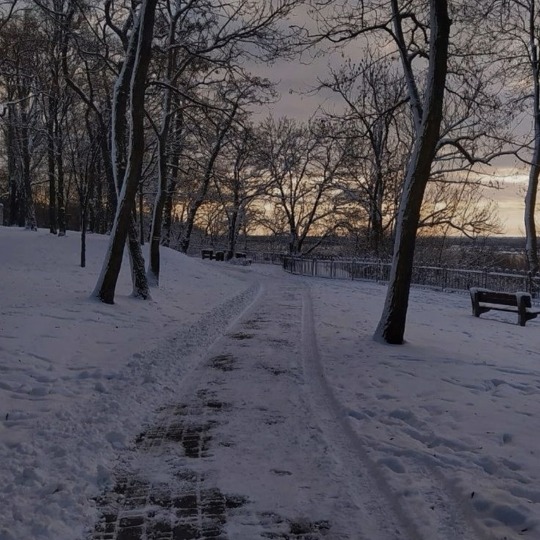
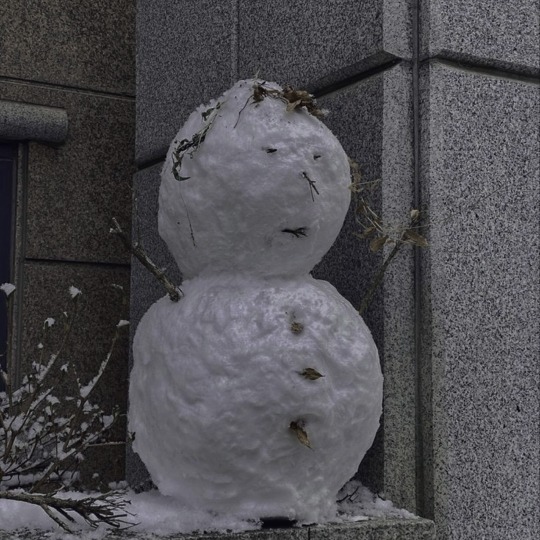
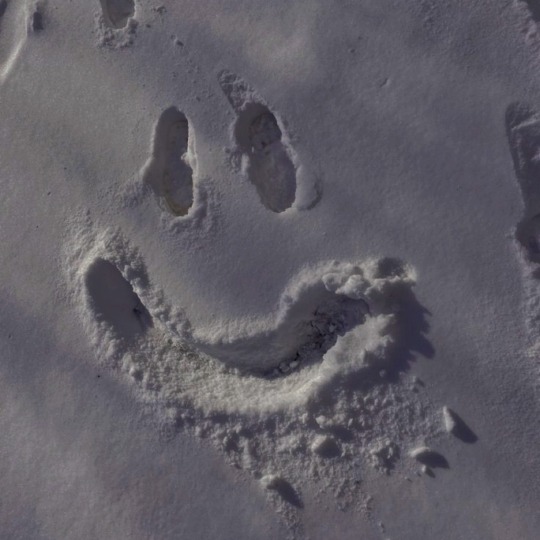
liked by logansargeant, daltonsargeant, and 42,451 others
yourusername day 14 without london boy and i have officially succumbed to the boredom and willingly subjected myself to the presence of my arch nemesis (love you logie 🫶)
view all 1,382 comments
logansargeant in my defense, you just showed up
user you could not PAY me to go out in this weather
user as a florida girlie myself, this is my nightmare
↳ user REAL
↳ user genuinely seeing this makes me so glad i live in a place where there’s no snow cuz yea, the view is pretty and all, but not even a gorgeous sunrise would make up for me freezing my ass off and having to wear seven layers just to keep the feeling in my fingers and toes
user i wish the most stressful part of my day was going for a morning run 😔
user calling logan her nemesis is so real i just know that man is a menace
↳ user the f2 clips of him and liam are proof enough
↳ user logan sargeant was a menace back in f3 💀 have you SEEN the prema videos with oscar and fred? bro is diabolical when he wants to be
↳ user i'm so excited for the chaos he'll bring to the grid this year
user the snow man is so cute!!
user “14 days without london boy” OH I AM ILL 😭😭😭
user ok but that view is gorgeousness
↳ user ikr?! winter sunrises are genuinely so pretty
user i’m still so confused as to why she isn’t riding anymore?? can someone pls explain
↳ user to be entirely honest, i’m not sure really what there is to explain. first and foremost, we aren’t owed any sort of explanation as to why she’s decided to take a step back from riding. it could be a personal decision, a career decision, or something else, but whatever it is we aren’t automatically entitled to it just because y/n has previously been very open and vocal about her and london boy’s training. second, she never actually said that she isn’t riding anymore. she said she’s taking a step back from competitive riding to focus on other things, and the “without london boy” part of her caption implies that she hasn’t seen him, but she could just be taking a prolonged break, or she could be focusing on something else that has prevented her from going to see him. but again, none of it is our business and she doesn’t owe us any further explanation to what she meant.
↳ user THIS THIS THIS!! as sad as i am to not have london boy on my feed, y/n is a grown adult with her own private life and we have to respect her decisions!! if or when she chooses to come forward about the specifics of her future plans and goals, then that’s great and i’ll continue to support her endeavors, but for the time being we all just have to be patient
user the selfie logan posted with you on his story was so cute!! 🥰
user she’s a runner she’s a track star
user i’ve missed the twin content!
↳ user me too!! i really hope that her taking a break from competitions (as much as i love london boy) will mean we get to see her actually going to more of logan’s races, especially now that he’ll be in formula 1!!
oscarpiastri if the rumours are to be believed, i look forward to getting to catch up at the races this year
━━ tags: @urfavnoirette @casperlikej @awritingtree @f1-is-lovely-33 @chasing-liberosis @405rry @aquangxl @bellezaycafe @peqch-pie @formulaal @chonkybonky @mess-is-my-aesthetic @flippingmyshit @peachiicherries @spacegirlstuff @myxticmoon @landosgirlxoxo @k-pevensie28 @moonypixel @lewisvinga @81vas @maih23 @thatoneembarrasingmoment @elz-xo @the-navistar-carol
━━ a/n: surprise! i've been working on this for a little while now (i got my wisdom teeth removed yesterday, so the time i've spent recovering has been spent polishing up the last few details for this first part) but here she is! as promised, the newly rewritten and revamped 'he likes my american smile'! i feel like i always say it, but the original genuinely holds such a special place in my heart because it was the first work i ever posted here on tumblr, so i'm really happy to take all that i've learned since then and apply it where i can in this new version. i really hope the changes and development is as loved by you all as it is by me, and that you all enjoy!
#formula 1#formula one#f1#formula 1 imagine#formula one imagine#f1 imagine#formula 1 x reader#formula one x reader#f1 x reader#oscar piastri#oscar piastri imagine#oscar piastri x reader#f1 fanfic#f1 fic#logan sargeant#social media au
466 notes
·
View notes
Text

Renee Short (Born April 26th, 1919) was a British Labour MP who held the constituency of Wolverhampton Northeast from 1964-1987. A former journalist, some of her particular interests were general and women’s health, social and family care, abortion law reform, women’s representation in parliament, and race relations. By the 1980s she was considered on the Soft Left of the party, aligned with Neil Kinnock.
Renee Short’s constituency neighbour was Tory Enoch Powell. In her 2003 obituary published in The Independent, fellow Labour MP Tam Dalyell wrote;
“…Her parliamentary life was much complicated by the fact that as Member for Northeast Wolverhampton she shared that city with the Member for Southwest Wolverhampton – J. Enoch Powell. Normally two MPs albeit of different parties have a decent working relationship. But in the Short and Powell case this was impossible. One of the first flash points was just before polling day in 1970 when "N***** Neighbour" stickers started to appear round Wolverhampton, prompting Short to denounce these Fascist tactics. Powell, determined to play down the situation at that stage, said: "I have not seen nor heard of these." Short responded to The Wolverhampton Express and Star that Powell was lying. Later Short asked Elwyn Jones as Attorney General whether Powell could be prosecuted under the Race Relations Act. It was this kind of ugly situation which reduced Short's majority in Wolverhampton Northeast to under 2,000 from the 8,102 which she had enjoyed in 1966…”
The reference to N***** Neighbour related to an escalation of a racist campaign trope that had featured also in Smethwick at the 1964 general election. “…If you desire a coloured for your neighbour, vote Labour. If you are already burdened with one, vote Tory…”
Dalyell suggests that Renee Short was ‘winkled out’ of reselection for the 1987 election, a victim of Labour’s internal struggles with the Trotskyist Militant Tendency faction, which seemed to be dominating her local constituency party at that point. She was described as a ‘much respected local MP’, and ‘superb at championing local causes’. The seat fell to the Conservatives, with a majority of just over 200 votes, but returned to Labour in 1992.
According to The Guardian;
“…She announced her intention to retire in the summer of 1985, just before facing a tough re-selection battle; in 1981, she had been re-selected by only three votes, and the likelihood was that she would not have been chosen again. It was, in many ways, an ungrateful response from a party she had loyally served with a profound commitment to the simple socialist belief of the need to improve the lot of the greatest possible number of people…”
Jack Jones, of the Transport and General Workers Union, Renee Short’s sponsor, said that she "impressed us as a champion of women's rights, and working people felt that she was on our side".
Having battled illness for some time, Renee Short passed away in 2003, aged 83.
#women in history#women in politics#race relations#uk politics#uk politicians#social justice#social history#working class history
14 notes
·
View notes
Text
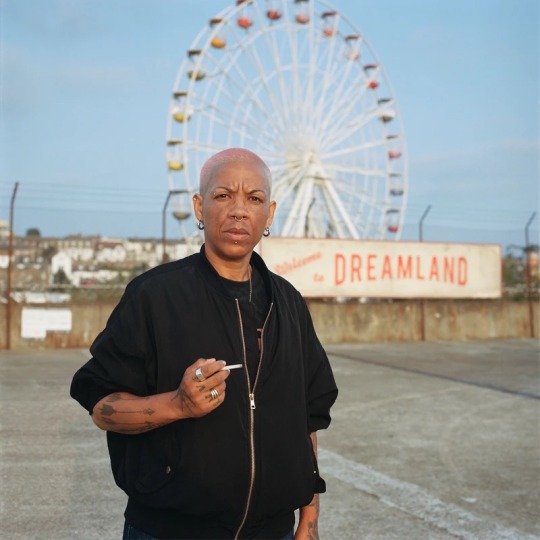
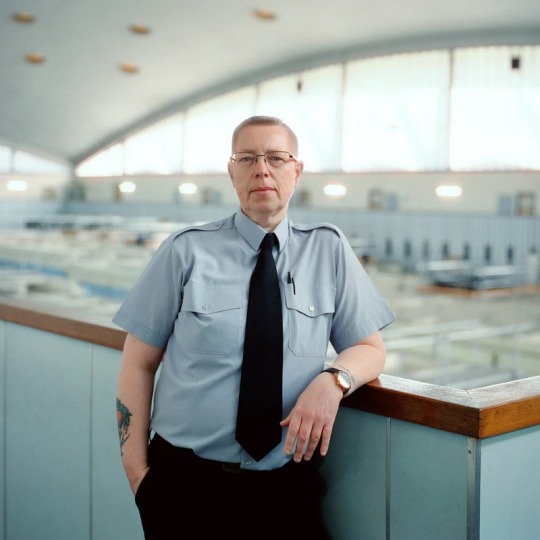


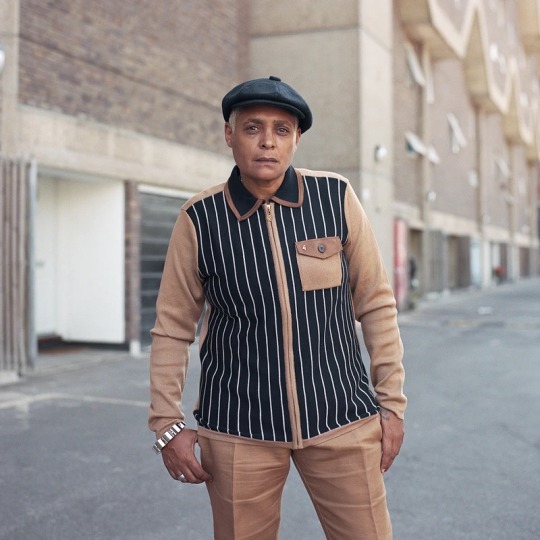

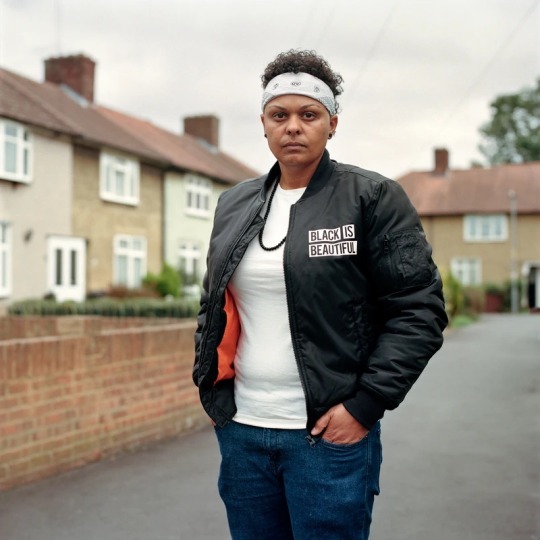
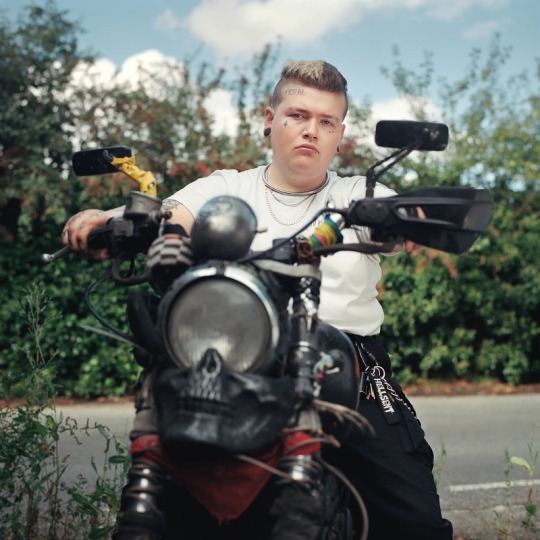
Roman Manfredi We/Us
Butches and Studs from working class backgrounds within the British landscape
Co-curated by Ingrid Pollard
Exhibition: 9 March – 3 June 2023 at Space station 65, Kennington, London
Opening hours: 12 – 6PM, Wednesday – Saturdays
Free to visit. Accessible. All welcome.
We/Us is an intergenerational photography and oral history project that celebrates the presence of butches and studs from working-class backgrounds within the British landscape. The project explores the experience of female masculinity through the structures of class and race all over the UK, capturing our diversity as well as our commonality.
When searching for images of butches and studs online, most that come up are from a bygone era, or from the US. Conversations around gender and identity today are often academic and London-centric, sometimes forgetting that our identities are informed by our every day lived experiences.
Our history and our lived experience is our gift to the world.
– Joan Nestle, Restricted Country
Exhibition audio - Participants were interviews about their lives and experiences,
Instagram
Vice uk feature
#posting this incredible exhibition with all the relevant information#dyke#butch#stud#masc#butch lesbian#stud lesbian#butch femme#Joan nestle#Ingrid pollard#Roman Manfredi#uk butch#lesbian#stud femme#butch4butch#butch dyke#masc lesbian#female masculinity#butch positivity#lesbian positivity
3K notes
·
View notes
Note
ghoap x nanny on🔝
they would go bananas trying to find her a Mother’s Day gift because even though she’s not she’s still so important to baby isla
UK mother's day is in march but i'm putting this out for the US folk <3 also not part of the main series! takes place an undefined period of time later, where isla is about 1 yr old, so the end of part 2 doesn't hold weight here
"Stop messin' with it. You'll ruin the wrap job."
"I'm tryin' tae curl th' ribbon. Eejit at the store forgot tae add th' mae touches." Johnny presses his thumb to the blade, tongue poked in concentration as he follows the tutorial. The lady in the video makes it look so easy, dragging her grip along the length of a blue streamer so that it jumps into a little ringlet when she releases. "Ye think women dinnae notice these touches but thay do. I had tae specially instruct th' flower guy up in Glasgow ower th' phone tae make sure he wrapped mah maw's bouquet in brown paper, fur apparently there's a difference."
But all the scot manages to do is slice his thumb open with Simon's knife, blood beading along the wounded site. He jerks away before it can stain the present, popping the digit into his mouth while begrudgingly handing the tools over to his partner.
Who does it with ease.
"Tha' wasn't so hard, was it?"
"Awa' n bile yer heid." Johnny grumbles, twisting his head to check out the window. "She said she'll be back by now."
"Who'll be back by now?"
The sing-song voice catches them both off guard, the pair clambering to hide the subject of their concentration, open-mouthed as you slip out of your pastel yellow galoshes by the door. An impish smile splits your cheeks, positively delighted by the fact that you were able to sneak up on them.
Isla shouts an approximation of your name from her playpen, pulling herself into a stand and waving her little arms around until you swoop in to pick her up. Simon feels his heart race, anticipation coating his palms in sweat as you sway with their little girl bunched in your arms.
"My little Isla-bug! Missed you so much baby." You coo, pressing kisses to her cheek. But Isla isn't interested in greetings. She squeals, legs flailing and finger pointing accusatorially at her fathers.
"Bug! Bug! Da an' Pa!"
"Are Da and Papa bugs too?" Johnny shuffles in place, scratching the back of his neck when you waltz suspiciously towards him. Almost as if you're trying to sniff out the clues the baby lays out for you, like a little detective duo. "Do they have a bug?"
"Yer a wee clipe you." He narrows his eyes at Isla, bumping noses when she giggles at his feigned grumpiness.
"Don't tell me you actually do." You straighten seriously, frowning once you notice the hand Simon keeps behind his back. "Si, I swear to God. I swear to God if that's a bug you're hiding I'll scream. I'll tell Price–"
That does it. He extends the gift before you misinterpret this further and make good on your threat. He can only imagine the awkward phone call with the Captain, who favours you more than he does his own team sometimes. It would not bode over well.
"Happy mother's day, love."
You clamp a hand over your mouth, eyes immediately glossing up in tears.
They discussed who would do this part – this vulnerable profession of how much you mean to them, to Isla. Because you're not her mum. Your name isn't on any of the adoption paperwork. You'd only come into her life when she was five months old, and there's no legal or biological ties linking the two of you together, or you to the boys. Just this human, very fragile bond you've forged over the past year. Something undefined, unnamed, but so magnanimous in its existence that it cannot continue existing without acknowledgement.
And while Johnny felt like the natural choice, Simon knew it'd mean so much more if it came from him. He's the one with the history, after all. The one who denied you a place in their life, again and again. Who wrote off your bids to help and took you for granted until it damn near drove you away for good.
It's clear that it hits you hard.
You pass Isla over to Johnny so as to hug yourself, staving off the waterworks by biting your lip. For a moment, that's all you do. Stand there and stare down at the wrapping paper with all the apples on it, the sleek coiled ribbons. Simon's hand shakes a little, unsure, but then you take it and crush him into a hug so tight, it's almost instinctual to push you off.
He doesn't, of course. Instead, his arms curl around your smaller form, cold fingers warming themselves on the curve of your shoulder.
"Thank you." You sniff from against his chest, then gracefully step back to address Johnny too. "Both of you. I can't– I'm so overwhelmed, I don't know what to say. Can I open it?"
"O' course." Johnny nods, sitting back on the couch and patting the open space next to him. Isla pulls on his overgrown mohawk, but the pain is nothing compared to the joy warming his heart. You're so beautiful like this. Flustered. Emotional. He could just bundle you up and hold you forever.
The bow comes undone with one tug. You take your time with the wrapping paper, though, peeling the tape off gently so it doesn't take off the pattern underneath. Your boys sit on either side of you, arched over like a pair of nervous schoolboys.
"My–"
It's a charm bracelet. Dainty gold links extended to the exact circumference of your wrist. Relatively empty, save for a few exchangeable starter baubles and a ladybug charm that hangs right at the centre.
"Bug!"
You laugh like summer rain. "That's right! It is a bug, clever girl. Can you say ladybird?"
"Lalalalala–"
"She'll get i' soon." Johnny smiles. Simon offers a large hand, slipping the bracelet out of it's box. You give him your wrist, and he clasps it shut around.
"Fits like a glove." He murmurs.
Ladybugs for fortune and grace.
You're their stroke of good luck.
#fic ༄ miss magic#brief spoilers#due to some foreshadowing#fore... backshadowing?#at whats planned for them in the main series#unedited#༄dee answers#simon riley x reader x john mactavish#ghoap x reader#ghost x reader x soap
607 notes
·
View notes
Text
Some Black History In Classic Doctor Who
Something I've been itching to make a post about as I made my way through classic who! I hope you enjoy ^o^


In the 4th season of Doctor Who (1966), the missing serial "The Smugglers" featured the first black character with a speaking role. This character was named Jamaica and he was played by Elroy Josephs! He was tasked with guarding the captured 1st Doctor, and was later killed for failing to keep guard over him.
Elroy Josephs was born in Jamaica, and besides being an actor he was also a dancer. He became the first black dance lecturer at IM Marsh in Liverpool, which is part of Liverpool John Moores University.
Elroy Josephs is often overlooked for his influence on black British dance and on November 1997, a bench and plaque was unveiled in Elroy's memory at John Moores University.
More about his influence of black dance in Britain can be read here
★


The serial immediately after was called "The Tenth Planet" and this serial featured Earl Cameron as Glyn Williams, the first black astronaut in television (I've seen people say it's actually Nichelle Nichols in Star Trek, since she appeared on Star Trek JUST a month earlier in 1966, though I'd argue the portrayal in Doctor Who is more akin to what we know an astronaut to be. Still, a crazy close call!)
Glyn Williams, alongside another astronaut, discovers the Cyberman home planet Mondas in their rocket. This is the first serial to feature the cybermen, too! Their rocket gets pulled in by Mondas's gravitational pull and they die in an explosion.
Earl Cameron was born in Bermuda, and is well known as the first black actor to take a leading role in a British film! The movie was called "Pool of London" and was released in 1951. It was his performance in this movie that led to him becoming "Britain’s first home-grown, non-American black movie star"!
Earl Cameron passed away in 2020 at the age of 102, making him the 5th Doctor Who cast member to reach his 100th birthday!
★ - ★ - ★


"The Tomb Of The Cybermen (season 5)" and "Terror Of The Autons (season 8)" featured 2 characters, both played by Roy Stewart. Both characters have been criticised for their racist depiction of a black man. In TTOTC, Roy played the character of Toberman, who was a mute servant of an expeditioner and the strongest one of the team. He had no say in any matters and was supposed to be purely muscle. He was partially cyberconverted and sacrificed himself to save everyone.
In TOTA, Roy played the character Tony, a strongman with animal furs also tasked to be brute force. He helped keep the 3rd doctor captive, but was knocked out by Jo Grant.
Born in Jamaica, Roy Stewart came to the UK with the idea to become a doctor, though he ended up changing his mind to start acting. There weren't many black stuntmen out there (they would have white people "black up"). He ended up doing a lot of stunt work and became one of Britain's top black actors/stuntmen! Though, a lot of his earlier work went uncredited.
Roy Stewart also ran a gymnasium in 1954 with a policy allowing people of all races to train together. He also opened a Caribbean restaurant and bar called The Globe in 1960, which he ran until the day he died (2008). The Globe is now one of longest-running nightclubs in London, still with a Caribbean restaurant upstairs.
"Frequented by Jimi Hendrix, The Rolling Stones, Van Morrison, The Clash and Bob Marley, The Globe became the place to be. Its notoriety was such, that even Mick Jones of The Clash named his album after it and wrote the title song about the nightclub." - The Globe Website
★ - ★ - ★


In season 5 the serial "The Enemy Of The World", Carmen Munroe played the role of Fariah Neguib, a food taster for the powerful politician, Ramón Salamander. She was a food taster by force, and rebelled against Salamander by giving the 2nd Doctor's allies important documents, revealing a black mailing side to the politician. She was shot and died in the arms of the enemy, pridefully refusing to give them information.
Though sources are a bit muddy on this (1 sketchy source and the rest is my memory of classic who), Carmen Munroe could very well be the first black woman in Doctor Who. And if not, She is most certainly the first with a prominent speaking role.
Born in Guyana, Carmen Munroe played an instrumental role in the development of black British theatre and representation on tv. She played a good number of leading roles, but is best known for the role of Shirley in British TV sitcom Desmond's. Carmen is also one of the founders of Talawa, the UK's leading black theatre company, which was created in response to the lack of creative opportunities for Black actors and the marginalisation of Black peoples from cultural processes.
Today, Talawa is the primary Black theatre company in the UK, with more than 50 award-winning touring productions from African classics to Oscar Wilde behind it. In total the company has produced more than 80 productions. Our name, Talawa, comes from a Jamaican patois term and means gutsy and strong - Talawa.com
Carmen was also appointed Officer of the Order of the British Empire (OBE), which is a British order of chivalry, rewarding contributions to the arts and sciences, work with charitable and welfare organizations, and public service outside the civil service.
★ - ★ - ★
Hope you enjoyed reading this bit of Doctor Who/Black History! Please feel free to add to this post with more black history in Doctor Who!
#I ran a bit out of steam though there's definitely more out there!#doctor who#black history#doctor who black history#classic#classic who#classic doctor who#doctor who classic#second doctor#2nd doctor#the second doctor#talkies#1st doctor#first doctor#the first doctor#carmen munroe#fariah neguib#roy stewart#toberman#doctor who toby#doctor who toberman#earl cameron#glyn williams#elroy josephs#doctor who jamaica#black artist#black actors#history#doctor who history#television history
369 notes
·
View notes